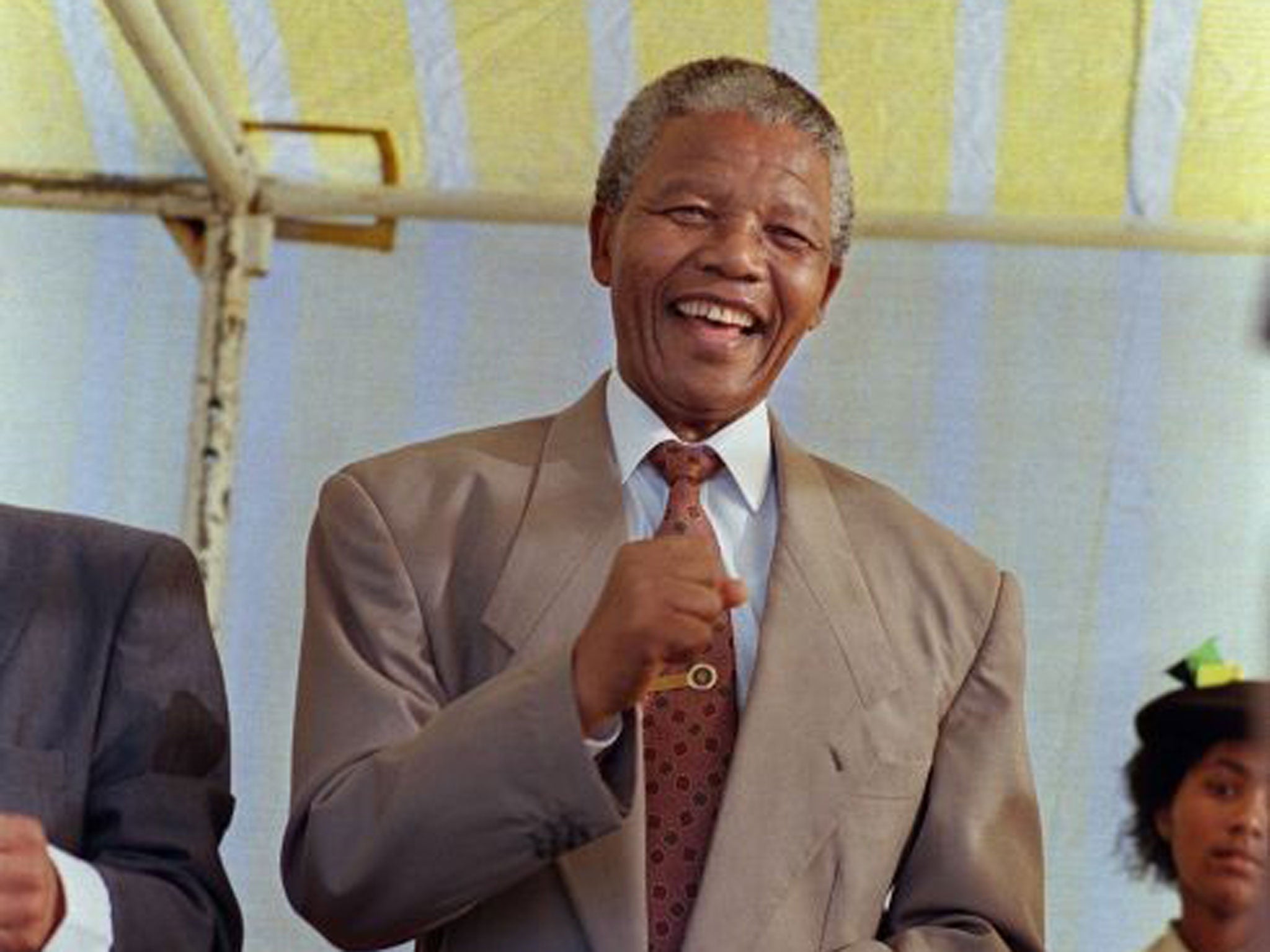Goodbye to Nelson Mandela – and to apartheid
Race is far down the list of most South Africans’ concerns. Now they have to deal with the same banal pressing problems as the rest of us


Your support helps us to tell the story
From reproductive rights to climate change to Big Tech, The Independent is on the ground when the story is developing. Whether it's investigating the financials of Elon Musk's pro-Trump PAC or producing our latest documentary, 'The A Word', which shines a light on the American women fighting for reproductive rights, we know how important it is to parse out the facts from the messaging.
At such a critical moment in US history, we need reporters on the ground. Your donation allows us to keep sending journalists to speak to both sides of the story.
The Independent is trusted by Americans across the entire political spectrum. And unlike many other quality news outlets, we choose not to lock Americans out of our reporting and analysis with paywalls. We believe quality journalism should be available to everyone, paid for by those who can afford it.
Your support makes all the difference.Today, South Africa buries Nelson Mandela and, with him, once and for all, apartheid, too. Racial conflict is no longer the distinguishing characteristic of South African society. To continue to regard South Africa in terms of relations between blacks and whites remains of interest, the country having been humanity’s race laboratory over the past 60 years, but it is no longer the chief concern of South Africans themselves. It is not even their fourth or fifth greatest concern. For most black people, in particular, it probably does not make it into the top 10.
The South African laboratory offered extreme test conditions in which to conduct the race experiment. First, you had what Mandela once described to me as “the moral genocide” of apartheid, the attempt systematically to exterminate a people’s self-respect. Then, with apartheid off the books, the question was whether black and white South Africans would overcome a history of injustice, resentment, guilt and fear, and manage, somehow, to get along. Events of the past 10 days, since Mandela died, have put the question to bed.
South Africans have not torn each other to pieces; the feared white counter-revolution, in the shape of a far-right terrorist group, never materialised. There will always be tension between the races on occasion, as everywhere, but, in general, black and white people cohabit daily with more ease and naturalness than in most countries. Today, all share a common sense of South Africanness; no one considers that one racial group has a greater right to identify with the flag than any other.
The evidence is all around, especially in Johannesburg, South Africa’s political and economic heartland. Let’s choose three examples from the past 10 days:
The scenes on the street outside the home where Mandela lived his final days: black and white and all shades in between, with Muslims, Christians, Hindus and Jews all mingling easily in celebration of the life of a national hero over whom no racial group purports to hold special ownership
At the memorial service at the FNB Stadium in Soweto on Tuesday, the official proceedings began with a multitudinous rendition of the national anthem. The anthem consists of two songs stitched together, at Mandela’s behest in 1994: the traditional hymn of black protest and liberation, “Nkosi Sikelel’ iAfrika”, and the old white anthem, “The Call”. The vast majority of the 50,000 or so people at the stadium on Tuesday were black but they sang the “white” part of the anthem with as much fervour as the black. (This, incidentally, was nothing new.)
The memorial service turned out also to be a sort of barometer of mass sentiment towards South Africa’s politicians. Some were booed, some received ovations. The biggest jeer of the day was for the current president, Jacob Zuma; one of the most heart‑felt ovations was for F W de Klerk, the last white president of South Africa.
That said it (nearly) all. De Klerk might be white but he was Mandela’s partner in the democratic transition between 1990 and 1994, and, in the end, he ceded power gracefully. The black crowds in Soweto recognised him as one of their own, as a legitimate and worthy compatriot; the fact that Zuma had the same skin colour as them counted for nothing.
Why? Because of the problems and challenges that South Africa faces today, the race question has slipped way down the rankings. Of far greater concern to people is the failure of the government to deliver housing, water and electricity to many of the poor, the shoddiness of the state education system, the rampant crime and, under- lying and explaining much of the above, the growing corruption and cronyism within Zuma’s African National Congress.
Obviously, apartheid’s legacy still remains in the form of the disproportionate share of the national cake owned by whites but, short of violent revolution or impossibly spectacular economic growth, that was not going to change drastically in 20 years. But also true is that black incomes have grown at a much faster pace than white ones in this period and whereas, when Mandela left prison, the concept of a black middle class was an alien one in South Africa, today the figure for the number of black middle-class people is estimated at more than seven million. Social divisions in South Africa are increasingly a function more of class than of race, a tendency that will only be consolidated with time.
The country, in short, has lost its epic, awful racial singularity. Today South Africa shares the same pressing, banal but complicated problems that assail the rest of humanity. Race remains in the mix, but it is no longer nearly as much of an issue as it once was, and is less of an issue now than it is in countries such as France, the Netherlands or even the United States, where everyday relations between black and white people are more tense than they are in South Africa. Nelson Mandela did what he set out to do. He went to his grave knowing that apartheid – his country’s racist uniqueness – is dead and buried, too.
John Carlin’s latest book is Knowing Mandela
Join our commenting forum
Join thought-provoking conversations, follow other Independent readers and see their replies
Comments